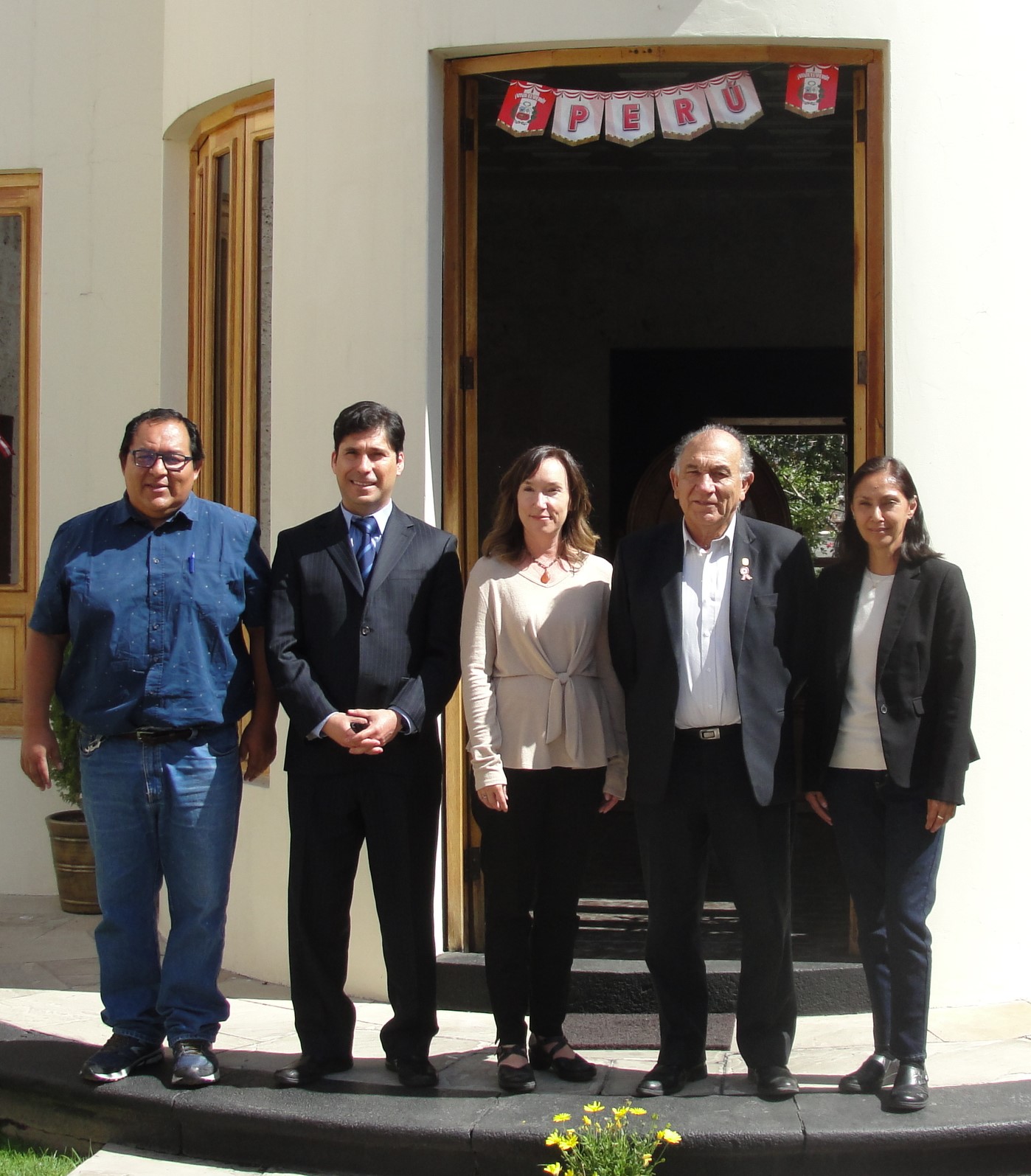The multiphase collaboration, Arequipa Nexus Institute for Food, Energy, Water and the Environment, has received funding for a third phase from the Universidad Nacional de San Agustín (UNSA). Launched in March 2018 by UNSA in Arequipa, Peru, and Purdue University, the institute is an innovative collaboration focused on key challenges to create a sustainable future for the peoples of Arequipa.
The Arequipa Nexus Institute leverages institution-level faculty, students and infrastructure commitment of UNSA and the strengths of research faculty and infrastructure from many of Purdue’s colleges including the College of Agriculture, College of Education, College of Health and Human Sciences, College of Liberal Arts, and the Purdue Polytechnic Institute. The colleges will collaborate with UNSA to build capacity and the strategic, long-term collaborations needed to address environmental, agroeconomic and social challenges.
 “We are thrilled to continue this important collaboration and provide support that will help UNSA’s faculty address critical environmental challenges while also supporting communities with the greatest needs,” says Lori Hoagland, professor in the Department of Horticulture and Landscape Architecture and co-director of the Arequipa Nexus Institute.
“We are thrilled to continue this important collaboration and provide support that will help UNSA’s faculty address critical environmental challenges while also supporting communities with the greatest needs,” says Lori Hoagland, professor in the Department of Horticulture and Landscape Architecture and co-director of the Arequipa Nexus Institute.
The initial phases of the collaboration occurred between 2018 -2019 and engaged more than 170 faculty and staff, 38 post-doctoral candidates, and over 50 graduate and undergraduate students. The six key topic areas of phases one and two were natural resources, agriculture and food, technology, sustainable design and teaching, community engagement and administration. Since the beginning of the collaboration, 51 articles have been published in international scientific journals, over 100 presentations have been given at international conferences and over 100 videos and webinars have been created and distributed.
“We are excited about this new phase of collaborative work with UNSA,” says Daniel Leon-Salas, associate professor in the Polytechnic Institute and co-director of Arequipa Nexus Institute. “The projects in this phase have been carefully selected based on their potential impact for the people of Arequipa.”
The goal with phase three is to continue to build the knowledge, capacity and tools needed to address grand challenges in the region, while also focusing on improving the livelihoods of underserved highland communities in the Colca Valley. The funding will also focus on projects aimed at supporting transition to organic food production, improving alpaca fiber quality, designing small-scale renewable energy systems, and creating plans for regenerative tourism.
“The ability to address environmental, agroeconomic, and social challenges in the country and support the long-term relationship with UNSA is one of the exciting roles we play at Purdue,” says Karen Plaut, Executive Vice President for Research. “It is about research, education and the ability to improve people’s lives by helping them meet their goals. We look forward to working with UNSA to make a difference for Peru.”
For more information, visit: https://www.purdue.edu/discoverypark/arequipa-nexus/en/index.php





